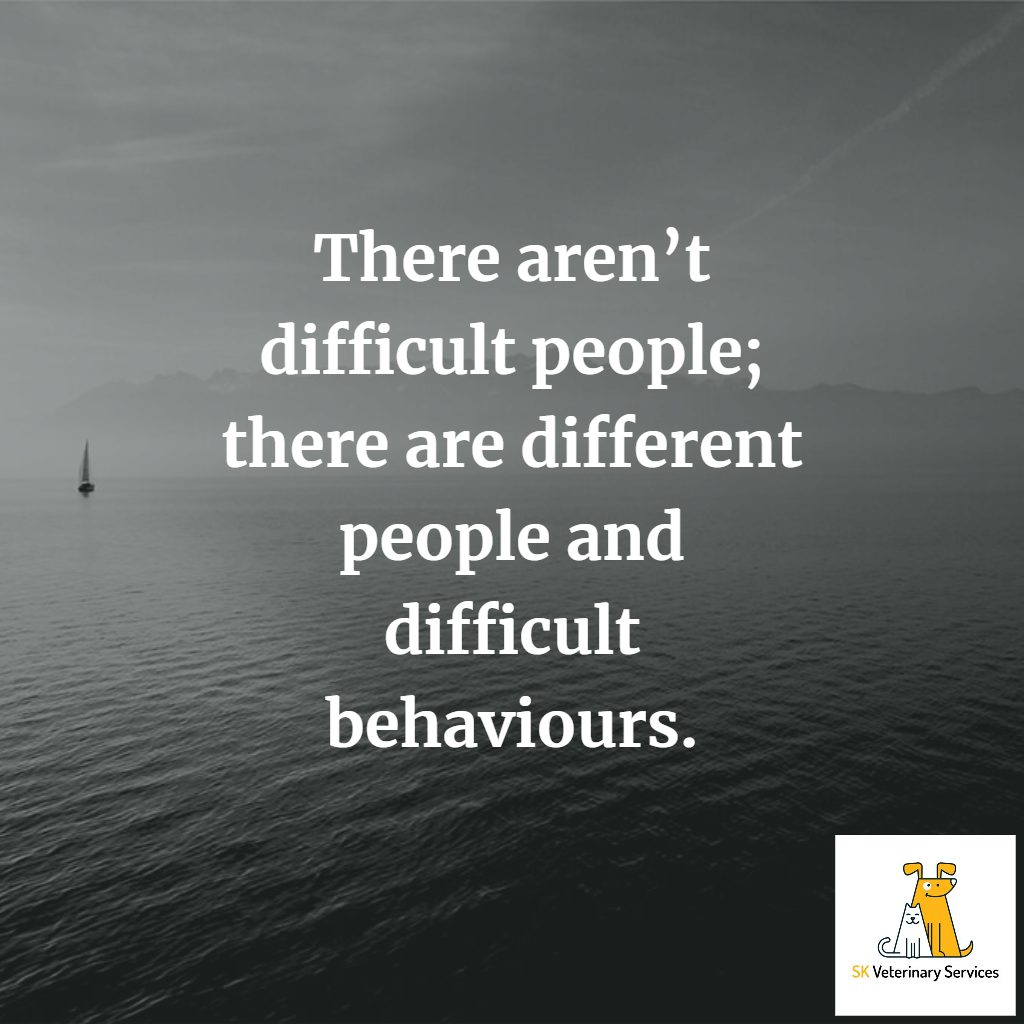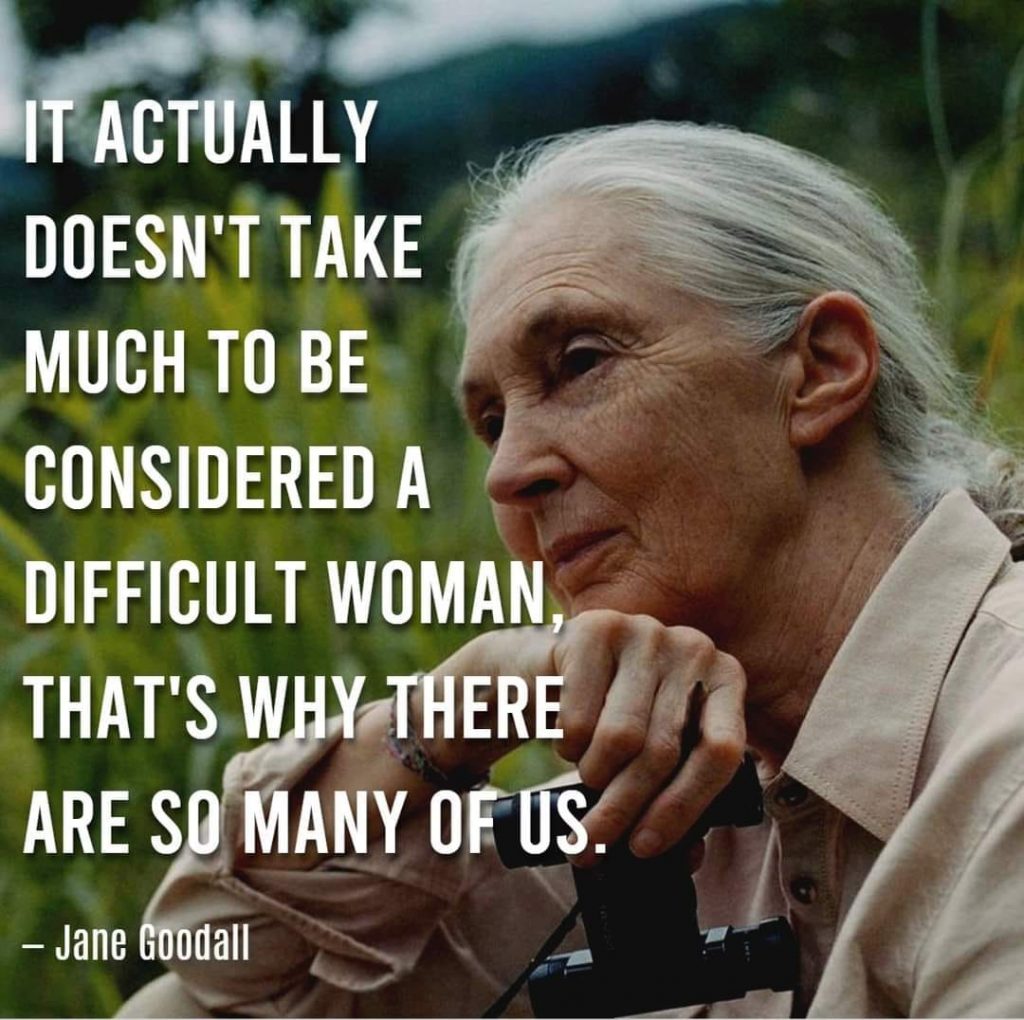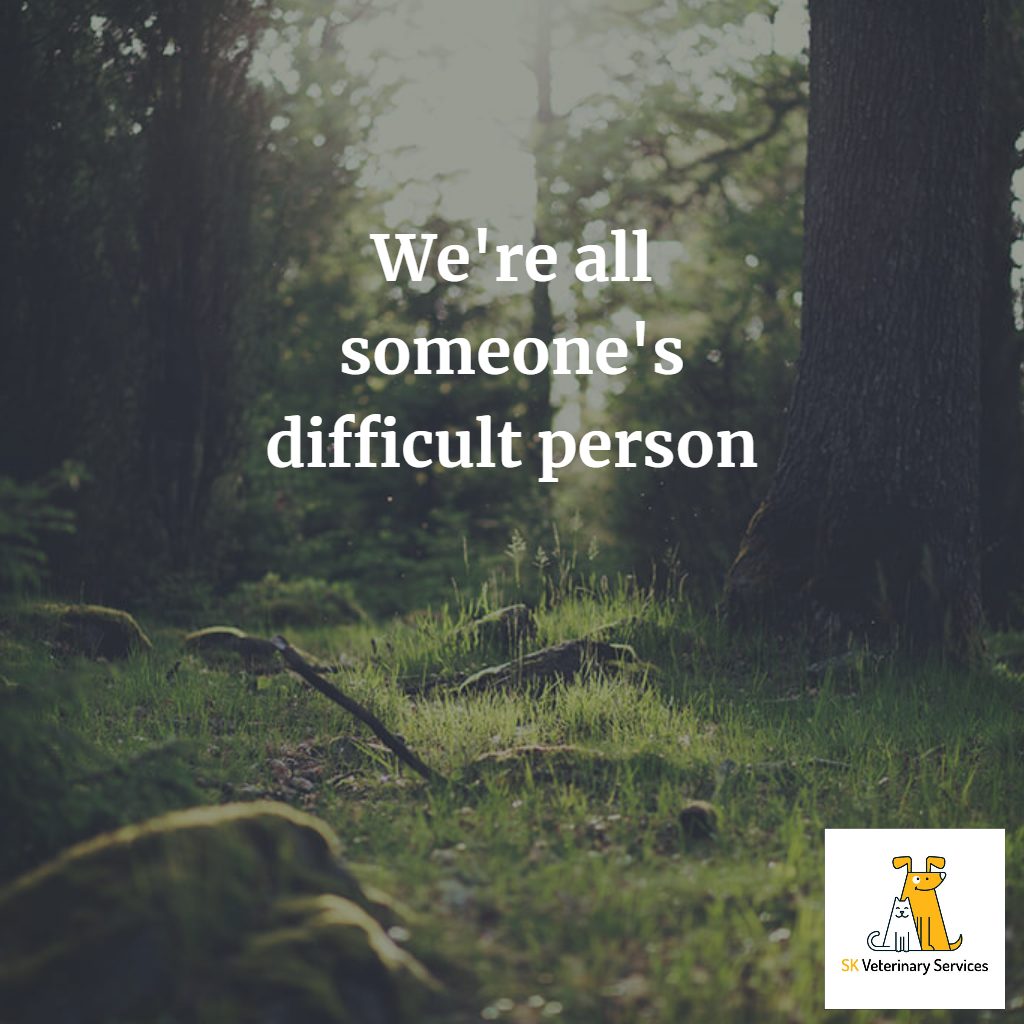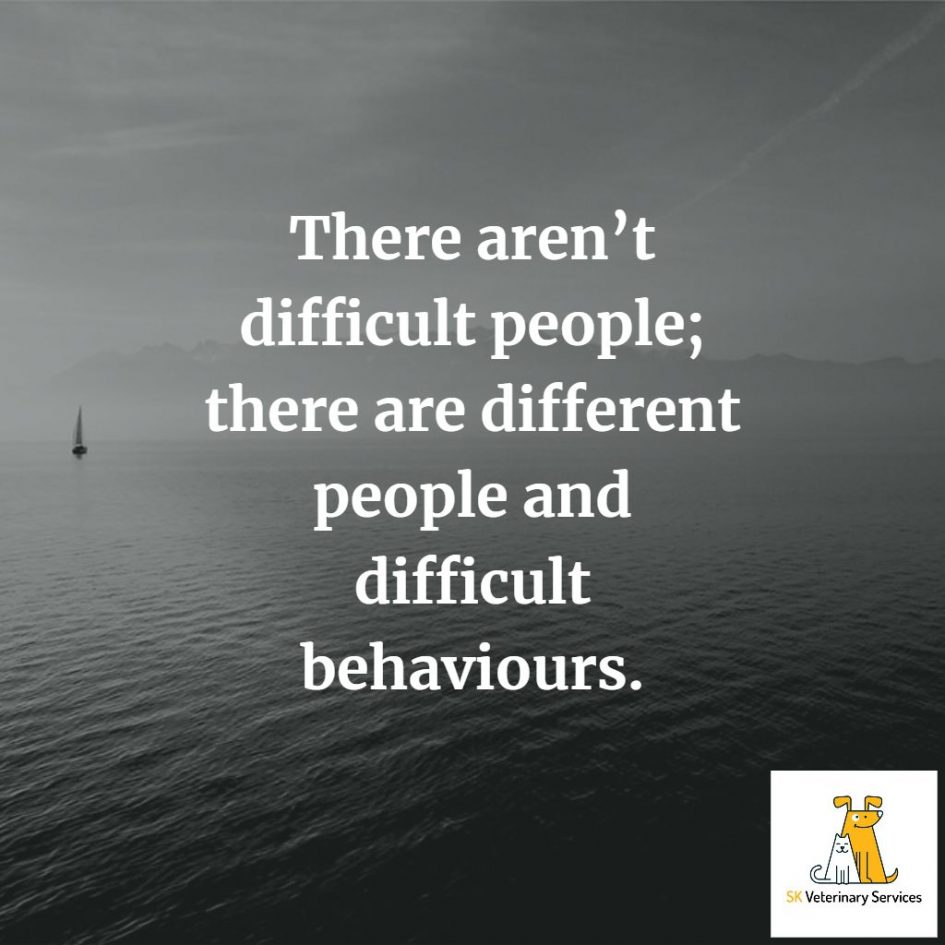I’m sure you’ve come across plenty of difficult clients – it’s a given if you’ve worked in clinical practice in the past few years. Or perhaps as a practice owner or manager, you have some difficult employees. Maybe you have been called difficult or worked with colleagues who are difficult. There are plenty (as in millions) of articles and courses on how to deal with difficult people. It’s a really common problem!
Truth bomb. If you label someone as ‘difficult’ it is more a reflection on yourself than the person you are dealing with; it is a label we use and respond to, often in negative ways, which shuts down communication, shuts out empathy and can become a cycle of conflict. I know many of you will stop reading this article as soon as you read this line – being shown something that we hold true is actually false is painful and we internally deny it to protect ourselves (read about cognitive dissonance, such as the book ‘Black Box Thinking’ by Matthew Syed). But if you are interested then keep reading and I’ll explain my thinking.
Many shades of difficult
We may use alternative words to ‘difficult’ in an attempt to avoid using a word that we, or the other party, might recognise as having negative connotations. After all, we don’t like being called difficult ourselves. Do any of these sound familiar: awkward, stubborn, determined, bitchy, aggressive, bossy, hysterical, argumentative, questioning? Instead, we may dismiss a difficult person with throw away phrases such as they must have mental health issues, be stupid for not understanding us or not caring for not paying to have their pet treated.
But who might these difficult people be? Well, they are you and me and anyone else who sees the world differently. You may be labelled a difficult person if:
- You have opinions and speak up – this maybe sharing ideas, having self-confidence and caring enough to speak up. But sharing ideas is essential for innovation.
- Not being submissive when the culture is deference to the hierarchy. Those who feel empowered and self-confident are naturally assertive, but this may not be taken well by those who do not expect to ever be questioned.
- You start difficult discussions where difficult discussions are not had, such as talking about racism, the environment, or political issues. Speaking up shines a light on these injustices but can make others feel uncomfortable.
- You have expectations as to how you would like to be treated and don’t let people disrespect you, you have boundaries, or you didn’t meet the unspoken standards or expectations of a situation. Others benefit from your lack of boundaries and may class you as difficult if you hold to them.
- You don’t fall into line and don’t accept the status quo – you may be classed as difficult as they were unable to convince you to do what they wanted and instead you questioned their reasoning.
- They feel they have been disrespected, hurt or slighted by your actions. This will have hurt their ego or they are upset you have not met their standards or expectations. Were these clearly set out or were they assumed and in a hidden social contract? Were they relying on stereotypes to determine their expectations of you?
- Something in your character rubs against them. People unconsciously hire people that are like them (law of attraction) so if they find someone is not, they push against them and push them out as difficult people.
- You are not a people pleaser, or not submissive – especially as a woman, you are meant to go along to get along and if you are not then obviously you are difficult!
- You communicate in different ways – different psychological types prefer to communicate in different ways, as do cultures across the world. It is hard to communicate in ways that are different to what we are used to and sometimes we just don’t want to put in the effort or don’t have the energy, and so this is ‘difficult’.
- You are upset or angry. When we are in a negative emotional state then communication closes down. We don’t come to work planning to be difficult but it can sometimes turn out that way due to stresses and anxieties of the day.
- People find you frustrating. Perhaps they thought they had given you an obvious direction and can’t understand why it is not? Or they were unable to convince you of their point of view or their reasoning – but perhaps they are assuming too much? You’re basically not doing what they want you to.
In other words, if you are at all different to the status quo, you are in danger of being labelled ‘difficult’. This is multiplied many times if you are already struggling to fit the norms of society – if you are neurodiverse, have a disability, don’t fit with gender stereotypes, you are from another country or culture, your accent is different, or you are an introvert when extroverts are expected. If you are very different from other people and they cannot see things your way or from your point of view, then the fact of being different makes you ‘difficult’. It is a rare skill of being able to see the world from someone else’s point of view. The thing is, all humans are complicated and that can make us all seem difficult.

It is important here to make a distinction between behaviour that is difficult and behaviour that is unacceptable. We are not talking about properly challenging behaviours here, like aggression (and the similar passive-aggressive), lying, disruptiveness and destructiveness, or the more subtle energy sucker. Bullying, harassment, and intimidating behaviour or speech based on a protected characteristic (race, gender, sex, age) are all illegal and morally indefensible.
The dangers of the difficult label
Many people who are labelled difficult don’t communicate in the same ways as the person who believes them to be difficult. Miscommunication and misunderstanding of someone else’s perspective can easily create the image of someone being difficult. The problem is by labelling someone difficult you have already made the decision, usually subconsciously, that it is too much effort to try to communicate and have probably decided not to try further.
By using the difficult label, we put the blame on the other person when we are the ones with the difficulty – the difficulty in understanding or seeing the other parties’ point of view. This means you have less incentive to find a solution yourself. We use the difficult label because we don’t understand the other person and we don’t want to understand, don’t have the time or we avoid uncomfortable conversations. We have been conditioned our entire lives to avoid conflict; it is part of the human psyche to avoid fight and so we sidestep it by practicing avoidance of the difficult person. We also fear what dealing with the situation may uncover in ourselves; we might not like what we hear or it might make us uncomfortable so we avoid it.
In blame cultures and complex situations, our brains opt for the simplest option which is to defend ourselves – the difficult label becomes a defence strategy. Dangerously, this can lead to victim blaming, such as seeing clients as the enemy, and is a barrier to effective communication. Past bad experiences reinforce this due to negative bias and we end up seeing all clients as the enemy but this leads us to have more bad experiences, becoming a vicious cycle and self-fulfilling prophecy. The person may have been difficult once but gets labelled with this forever.
You really don’t know the other person without knowing them over a long period of time. In a 10-15 minute consult, you don’t know what the other person has going on in their lives, or if they have learning issues or mental health issues that affect their cognitive processing. The same is true for many managers of people – basing their knowledge on a person on curated evidence from interview, a few short chats, perhaps one or two bits of feedback from the team and suddenly the employee is labelled as difficult.
Humans are hierarchical and alternative opinions are seen as threats to dominance, often in a subconscious way. However, this means that diverse opinions and discussions are suppressed and this is dangerous for business and teams. In complex systems, of which veterinary is a prime example, if people have similar perspectives they have similar blind spots and are oblivious to them, leading to perspective blindness. Complex systems need diversity of thought to solve the continuous churn of problems and to innovate. The difficult label stifles diversity and we lose the ability to see our own and the collective blind spots.
Calling someone ‘difficult’ is bad feedback – it is a judgement, and often personal. It is non-specific and doesn’t allow the person to correct any deficits and it doesn’t give any opportunity for learning or growth. It also stops people getting the help they need – perhaps the difficult behaviours are part of neurodiversity that they could do with some help understanding and managing. The other person will switch off if you tell them they are a difficult person.
The stigma associated with being different and therefore difficult means many of us hide our authentic selves, which can cause huge internal stresses. If your core value is to be authentic but the working culture is conformity, or you work somewhere you are told it is OK to bring your whole self to work but then find out that they didn’t mean your ‘difficult’ or messy bits (i.e. the bits that don’t conform to the accepted and expected status quo) it can be very hard to be viewed as different.
Cultural expectations play a role in being different. Women are supposed to be nice, not to cause trouble and the pressure of culture is to be likeable and biddable. It means we don’t speak up for what we need or for values that are important to us and so we end up being internally conflicted. Or if we do behave in ways that go against these cultural norms we are labelled as ‘difficult’, whereas a man may well not be. There are just as many difficult men, but they don’t have the cultural expectation on them to be nice and get along with everyone.

Solutions
Simply changing the language we use makes a huge difference to how we view a situation. We need to stop labelling everything as ‘difficult’ – it becomes a block to dealing with people, whether they are clients or colleagues, as it stops effective communication and empathy. Use positive descriptors such as empowered (‘that’s an empowered person speaking and sharing what is important to them’) and remove the personal aspects to the behaviour which are a judgement on character – instead of ‘you are a difficult person’ try ‘when you talk to me like this it is difficult for me to help you’ or ‘I’m finding it difficult when you do/say x and y’.
Developing some soft skills can really help in this regard; learning how to communicate with different types of people, how to influence with integrity and emotional intelligence to listen to your internal thought processes before they externalise as behaviours. It is important to be mindful of how your actions and words might affect others and to strive to be considerate and respectful in your interactions. Don’t expect others to be like you or to think the same as you; we are all individuals and have a right to be ourselves. If you are finding yourself being repeatedly called difficult, is it because you are neurodiverse? An estimated 50% of veterinary professionals in the UK are thought to be neurodiverse (personal communication), higher than the general population.
If you find someone difficult, be curious as to why you personally find them difficult and ask that person to help you understand them. Perhaps they are autistic or have home issues or are stressed about their beloved pet – what is going on for them? Listen, don’t make assumptions as to why someone behaved in the way they did and be compassionate. When giving feedback on difficult behaviour, add feedback on the impact of the behaviour. A lot of the time, the reason why we do what we do is that we don’t understand the impact of it. When it is brought to our attention, most of us will respond by explaining why we did what we did and considering it differently in future.
It is right to have opinions and speak them – this is sharing ideas and is how innovation occurs, caring enough to speak up. This can be hard if the culture is not to share ideas or deference to hierarchy but this is a block to innovation, essential in complex systems like veterinary. Cultivate a culture of openness and psychological safety within teams.

Conclusion
We need to reframe ‘difficult’ – clients are partners in health care and struggling employees and colleagues need you to lead them to allow them to grow. Using the label ‘difficult’ is loaded with negative connotations and will only block communication.Get curious, ask and listen – work out why you see this person as difficult and gain the skills needed to navigate difficult conversations. There are no difficult people, just different people.
I hope I have at least opened your eyes to the possibility of the dangers of labelling people as ‘difficult’ and perhaps inspired you to consider your part in the dynamic.
Additional Resources
If you’d like to explore the ideas in this article further I suggest this TED talk on expectations and perceptions lead to difficult people and this TED talk on difficult really means different.

Leave a Reply